Ukrainian EITI delegation working visit to Germany
On April 23 to 29, 2017 the Ukrainian delegation was on a working visit to Germany. It was invited by Germany's Secretariat of the Extractive Industries Transparency Initiative. The delegation of Ukraine was represented by members of the Multi-Stakeholder Group created for implementing the Extractive Industries Transparency Initiative (EITI).
The Ukrainian delegation included representatives of governmental bodies, extracting companies and non-governmental organizations as well as representatives of Deutsche Gesellschaft für Internationale Zusammenarbeit (GIZ) GmbH in Ukraine.
The Extractive Industries Transparency Initiative in Ukraine is supported by the German and UK Governments via the Effective Management of Public Finances project implemented by Deutsche Gesellschaft für Internationale Zusammenarbeit (GIZ) GmbH, a federal company.
Deputy Minister of Energy and Coal Industry Ms N. Boiko and members of the Multi-Stakeholder Group (MSG) met with representatives of the Germany Ministry of Economy and Energy and studied the Germany's resource development strategy and the process of Germany's preparation for publishing the first EITI report.
At the meeting, representatives of the German Ministry stated that the Federal Government is guided by the interdisciplinary Strategy of Natural Resources Management. Its areas include: transparency of the mineral resources market; investments in education and research; bilateral cooperation with countries that have subsoil energy resources and minerals, and a great focus is made on recycling, 10% of subsoil energy resources and minerals demand is satisfied by recycling, and 50% of copper is produced from secondary raw materials.
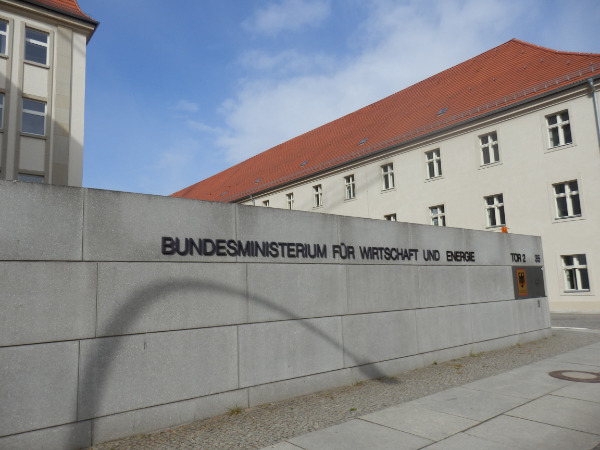
MSG representatives took the greatest interest in the process of preparing Germany's first EITI report by the D-EITI Secretariat in Germany. The difference from the standard approach is the inclusion of data on renewable energy sources in the context part of the report, which was done upon demand of the public. It should be mentioned that the processes of preparing the reports in Ukraine and Germany differ in a number of aspects, in particular, the scope of assignments for the MSG and the Independent Administrator, inclusion of various industries in the scope of the report, etc. Many differences are due to the federal structure of the country.
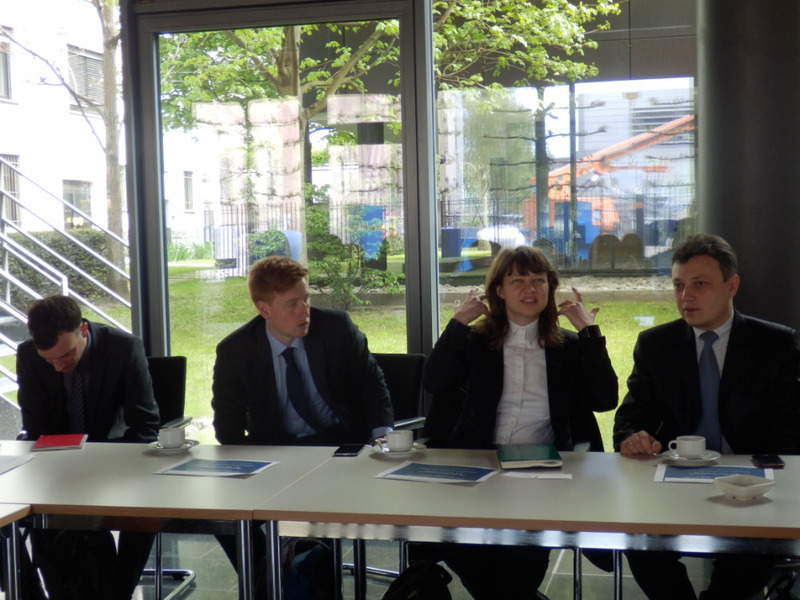
In the course of the visit, there were meetings with German extracting companies and associations taking part in preparing the EITI report. The Ukrainian delegation visited the Geocenter in Hannover, the federal state of Lower Saxony. The delegation members were most interested in the possibilities of the interactive maps of fields and wells that were exhibited. The Geocenter's information system for several states of Germany, which incorporates information on the land, soil, subsoil, forests, and each of the wells, including those where fracking took place. According to the information provided by the institution, some German states allowed fracturing at a depth of 3 to 5 km. For more information on the above system see https://nibis.lbeg.de/cardomap3/
The Geocenter is proud of its geological information system because the system is unique. Europe's largest geological information web portal is in the Geocenter. The web portal contains up to 400 maps of different kinds. Another difference of the center is that there are no more papers on the employees' desks since all the documents are in electronic format.
As the deputy director of Geocenter in Hannover said, the institution has an archive of geological data, which are collected, processed, systematized and stored. However, geological research is conducted by private companies and these private companies own their results and can sell them but are also obliged to transfer them to the Geocenter.
The Ukrainian delegation visited a sour gas field owned by Wintershall in this region; this company is a member of the Multi-Stakeholder Group engaged in EITI implementation in Germany. Wintershall operates in a number of countries around the world. According to its technical director, the company has mastered many new modern technologies so it can perform drilling operations in severe environment as well. Yet, great attention is paid primarily to the high standards of environmental safety and protection. The delegation members visited a small company whose personnel takes pride in a new well of almost 5 thousand meters in length, including 770 meters of horizontal drilling. According to a representative of the extracting company, this kind of structure made it possible to avoid fracking.
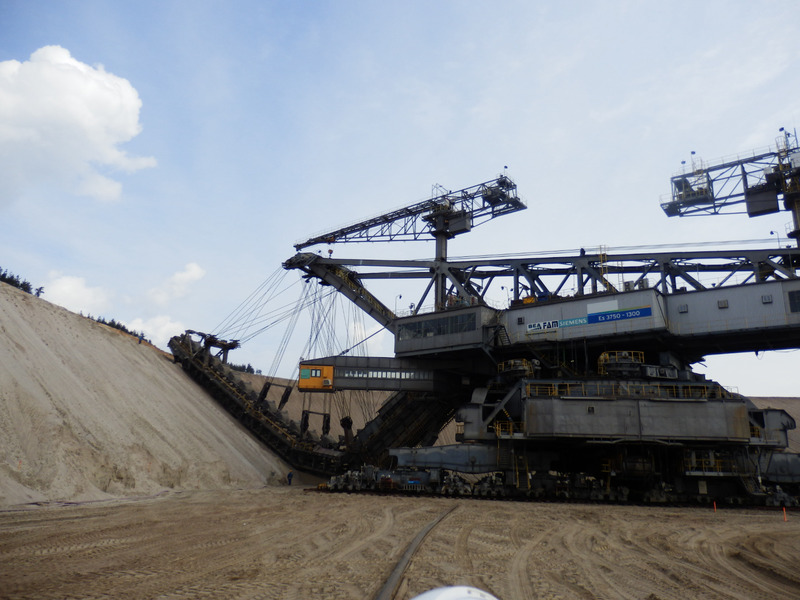
Representatives of Ukrainian extracting companies suggested that the company pay attention to Ukraine and visit our production facilities.
The visitors also paid a visit to LEAG's brown coal open-pit mines located in the city of Cottbus, the federal state of Brandenburg.
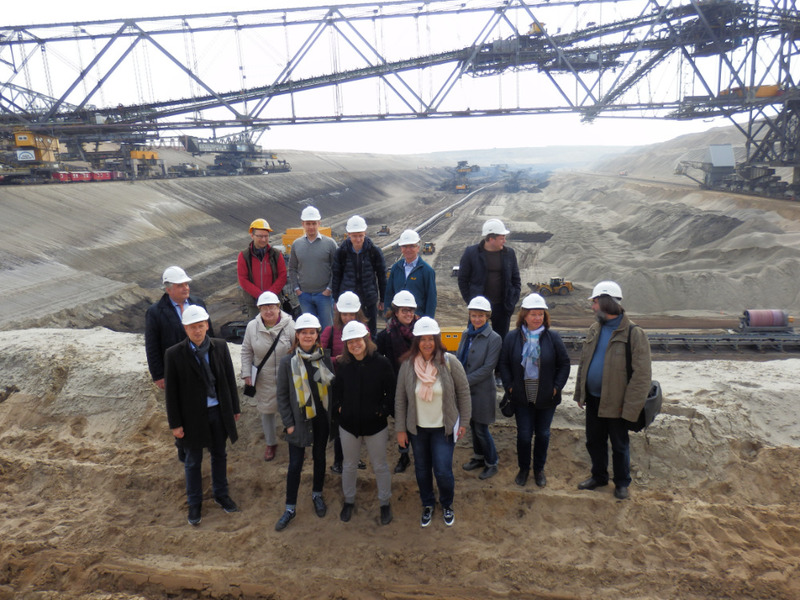
LEAG is a company that has brown coal open-pit mines and power plants connected with the railway, and sells electric power for the year 2018 at 2 euro cents per kW (at exchange price). Brown coal is extracted via open-pit mining. The coal extraction machinery, roads, and organization of the process are impressive.
Germany has strict land reclamation requirements, so extracting companies reconstruct the natural landscape and bear responsibility for many years, until the area is restored to its former condition. Now there is a plan to reclaim 8 thousand hectares, and the forest ranger is in charge of the reclamation process. The process is as follows: first, they remove scrap metal, toxic substances, old pollutants from the area, then they infill the area to make it high enough, 4 meters higher than the ground water level. After that, the area is divided into different zones: water bodies, forests, natural fields, areas for agriculture. The infilling process takes two years, then the territory is restored for 7 years for agricultural purposes, and after that it takes 10 years for the forests to grow back. The land plot owner is responsible for the restoration and preservation of the environment and the state takes good care that this statutory provision is complied with. There is enough money, understanding and ability to do it all. Primarily, this is not due to the legal requirements but because people love their land and are responsible for it.
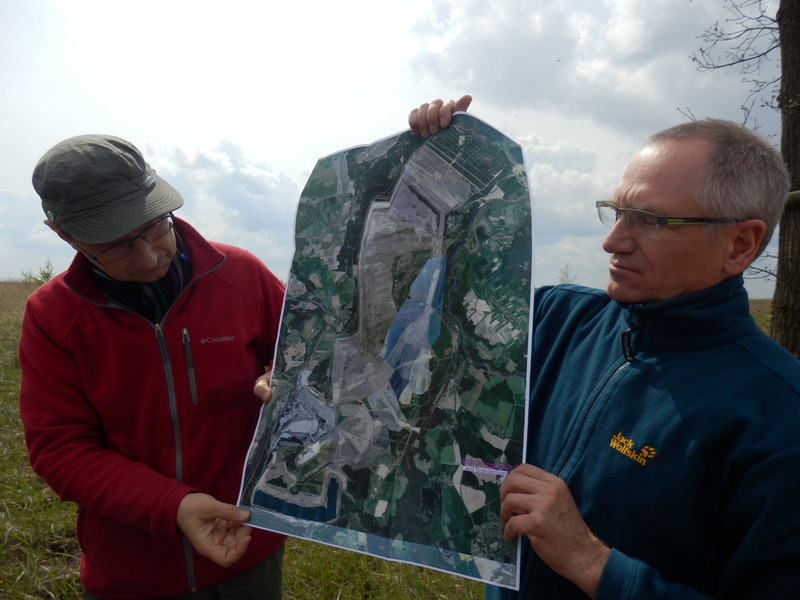
During the visit, there was also a meeting with a representative of the Independent Administrator, who told about the details of preparing Germany's first EITI report, about the fiscal mode and specifics of working with companies that have to provide data.
During the meeting with a representative of Walter Palmetshofer Open Knowledge Foundation Deutschaland who deals with open data, he pointed out that open data are necessary for transparency and innovation. The projects being currently implemented are: "Code for Germania", "School of Data", "Ask the State", "Closed Nature of Courts", "Open Budgets". So, these problems are relevant not only for Ukraine. It should be mentioned that Germany joined the Open Government Partnership Initiative and the Extractive Industries Transparency Initiative later than Ukraine did.
In the course of the meetings, the parties were able to exchange experience of implementing the EITI as well as plans of further cooperation between Ukrainian and German members of the Multi-Stakeholder Group.








